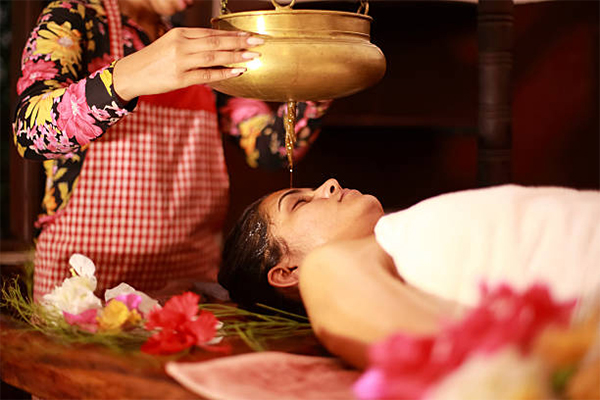
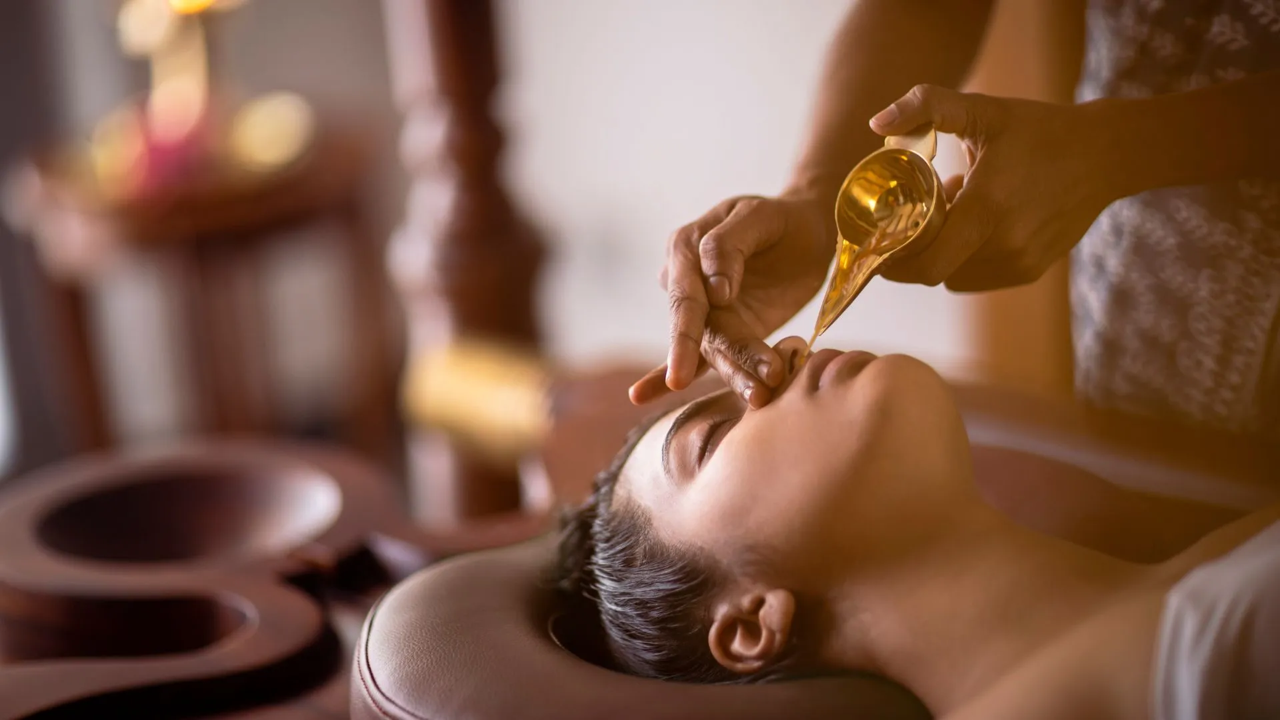
Ayurveda Panchakarma Course
Dr. Venu Sasikumar offers a one-month Panchakarma learning program at Shiva Ayurveda in Kovalam, designed for individuals interested in mastering the ancient art of Ayurvedic detoxification and healing. The program covers the principles and practices of Panchakarma, including detailed training on various detoxification therapies, herbal preparations, dietary practices, and patient care. Under Dr. Venu's expert guidance, participants gain hands-on experience and deep theoretical knowledge, preparing them to apply these techniques professionally or incorporate them into personal wellness practices.
This course is designed to impart comprehensive knowledge and practical skills in the field of Ayurveda Panchakarma therapies, with a special focus on Ayurvedic massage and treatment.
Course Duration: One Month
The course spans a total of one month, providing an immersive learning experience.
Course Fee: ₹30,000/-
Objectives:
The primary objective of the course is to equip students with detailed theoretical knowledge and hands-on experience in Ayurveda Panchakarma therapies. This involves learning about various Ayurvedic treatments and massages, understanding their applications, and mastering the techniques involved.
Course Structure:
Week 1: Introduction to Ayurveda and Panchakarma
Day 1-2: Fundamentals of Ayurveda
History and Philosophy of Ayurveda:
Understanding the origins and evolution of Ayurveda.
Exploring the philosophical underpinnings of Ayurvedic practice.
Basic Principles (Dosha, Dhatu, Mala):
Learning about the three doshas (Vata, Pitta, Kapha) and their significance.
Understanding the seven dhatus (tissues) and three malas (waste products).
Day 3-4: Introduction to Panchakarma
Concept and Importance of Panchakarma:
An overview of Panchakarma and its role in detoxification and rejuvenation.
Discussing the holistic benefits of Panchakarma therapies.
Five Major Panchakarma Therapies:
Detailed study of the five main Panchakarma therapies: Vamana, Virechana, Basti, Nasya, and Raktamokshana.
Day 5-6: Ayurvedic Anatomy and Physiology
Understanding Body Constituents:
In-depth learning about the body's constituents according to Ayurveda.
Physiology in Ayurveda:
Exploring how Ayurvedic principles apply to bodily functions and processes.
Day 7: Assessment and Review
A review session to assess the knowledge gained during the first week.
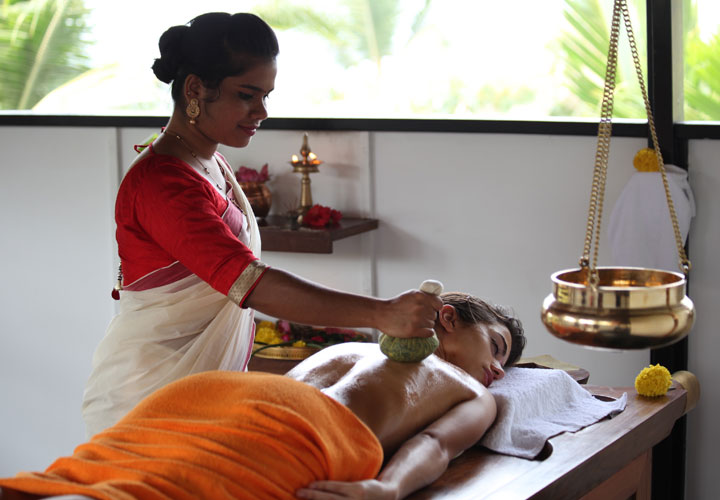
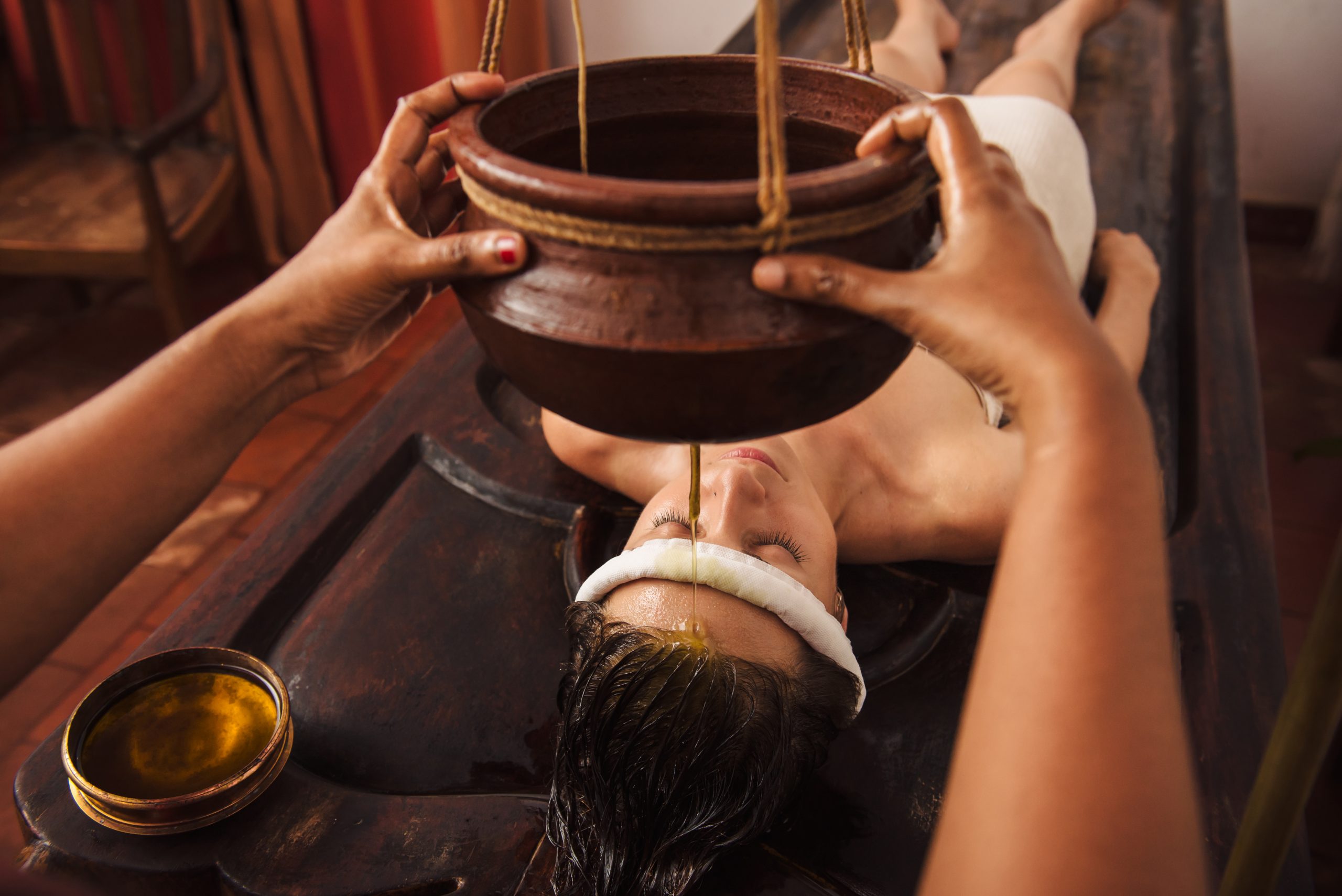
Week 2: Panchakarma Therapies - Theory and Practice
Day 8-10: Vamana (Emesis Therapy)
Indications and Contraindications:
Learning when and for whom Vamana therapy is appropriate.
Understanding situations where Vamana should not be administered.
Procedures and Preparations:
Step-by-step guidance on preparing and performing Vamana therapy.
Practical Sessions:
Hands-on practice to gain confidence in administering Vamana.
Day 11-13: Virechana (Purgation Therapy)
Indications and Contraindications:
Identifying suitable candidates for Virechana.
Recognizing conditions that contraindicate Virechana.
Procedures and Preparations:
Detailed instructions on conducting Virechana therapy.
Practical Sessions:
Practical training sessions for Virechana.
Day 14: Assessment
Evaluation of the theoretical and practical knowledge acquired in the second week.
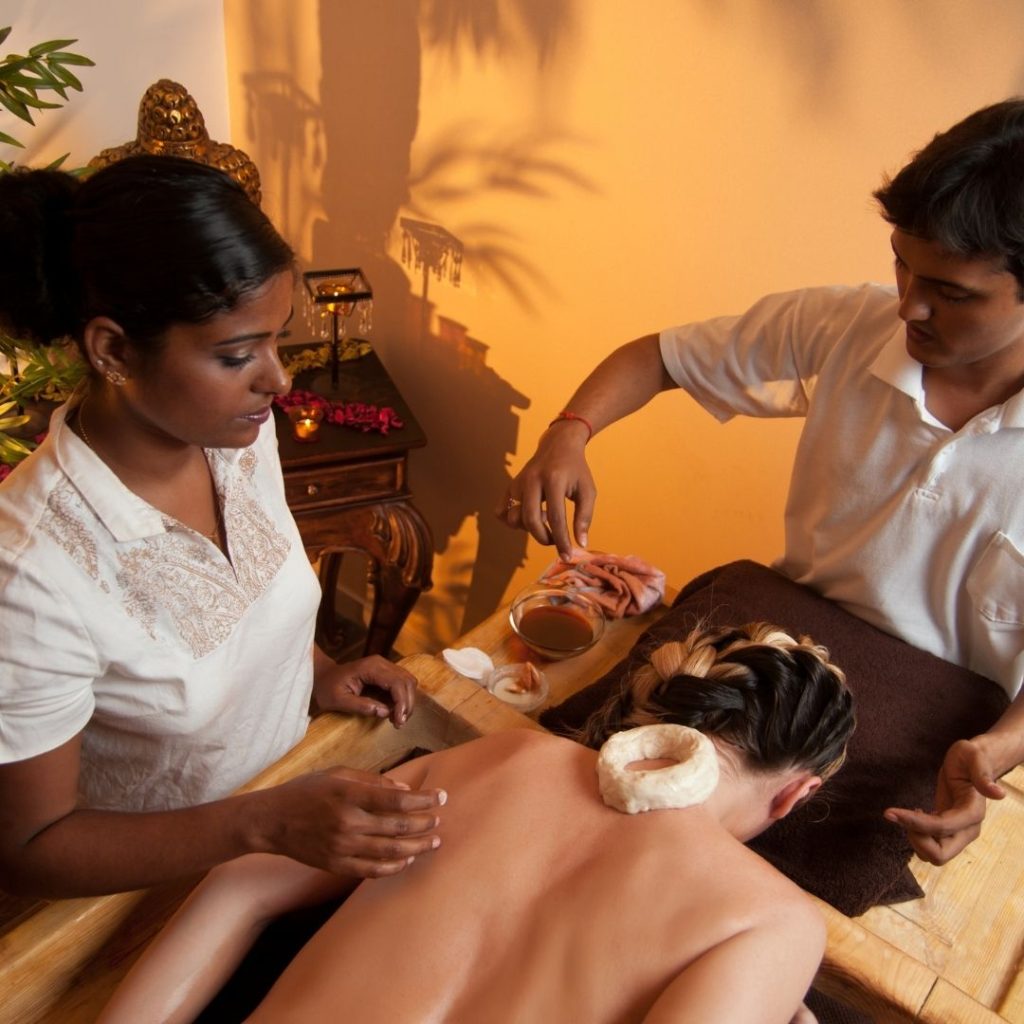
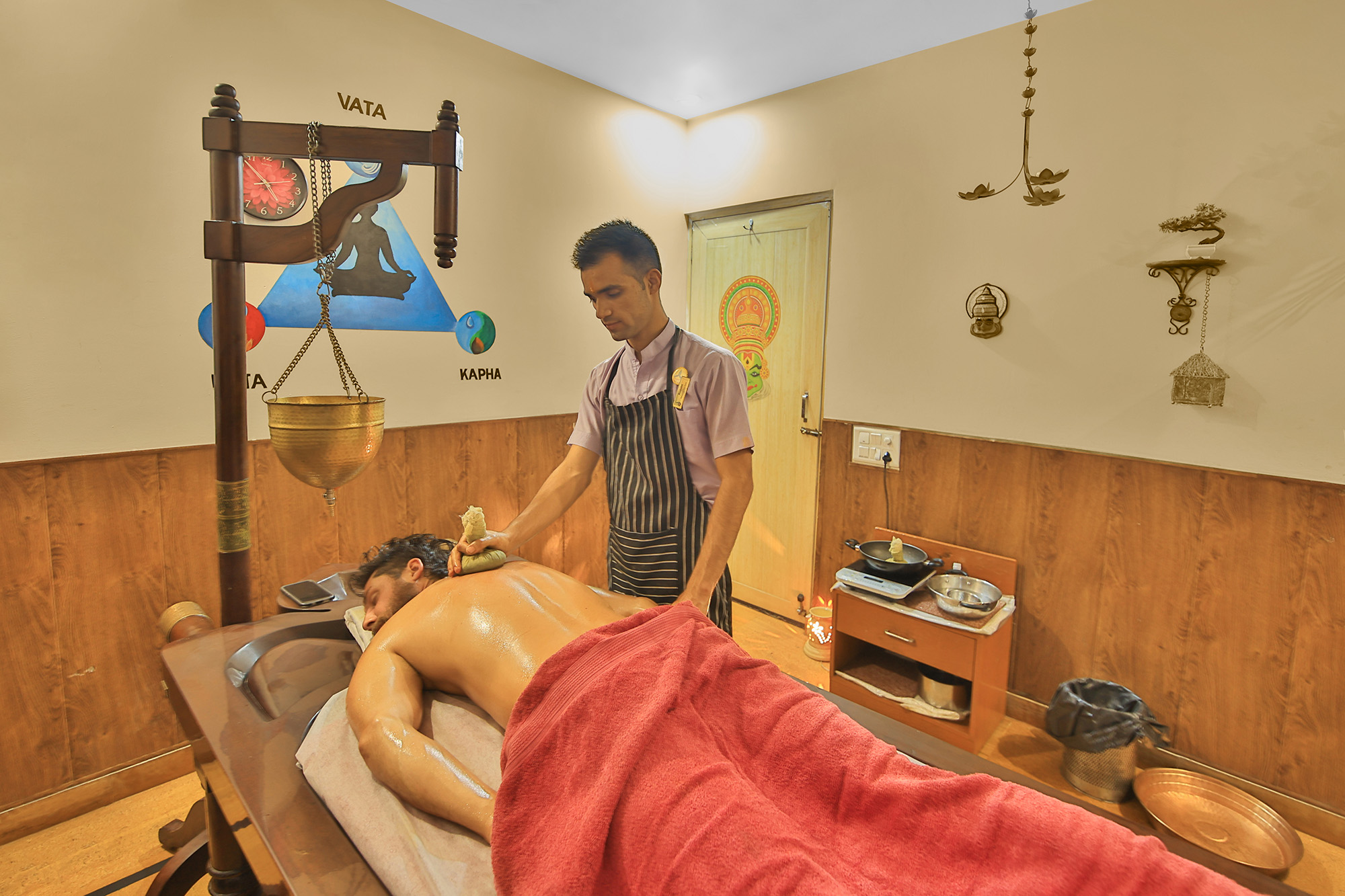
Week 3: Panchakarma Therapies - Theory and Practice
Day 15-17: Basti (Enema Therapy)
Types of Basti (Niruha and Anuvasana):
Understanding the different types of Basti and their specific uses.
Procedures and Preparations:
Comprehensive guide on preparing and administering both Niruha and Anuvasana Basti.
Practical Sessions:
Hands-on practice sessions for Basti therapy.
Day 18-20: Nasya (Nasal Administration)
Indications and Contraindications:
Identifying appropriate candidates for Nasya therapy.
Recognizing contraindications for Nasya.
Procedures and Preparations:
Instructions on performing Nasya therapy.
Practical Sessions:
Practical training in administering Nasya.
Day 21: Raktamokshana (Bloodletting Therapy)
Indications and Contraindications:
Determining suitable candidates for Raktamokshana.
Understanding contraindications for bloodletting.
Procedures and Preparations:
Step-by-step guidance on conducting Raktamokshana.
Practical Sessions:
Hands-on practice sessions for Raktamokshana.
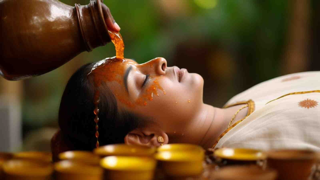

Week 4: Advanced Therapies and Course Conclusion
Day 22-23: Shirodhara and Abhyanga (Head and Body Massage)
Techniques and Benefits:
Learning the techniques and therapeutic benefits of Shirodhara and Abhyanga.
Practical Sessions:
Practical training in performing these massages.
Day 24-25: Ayurvedic Diet and Lifestyle Management
Principles of Ayurvedic Nutrition:
Understanding the principles of Ayurvedic dietary guidelines.
Daily Routines and Seasonal Regimens:
Learning about Ayurvedic lifestyle practices and seasonal regimens.
Day 26-27: Case Studies and Treatment Planning
Analyzing Patient Cases:
Reviewing and analyzing real patient cases to understand practical applications.
Designing Personalized Treatment Plans:
Learning to create tailored treatment plans based on individual patient needs.
Day 28-29: Final Assessment and Practical Examination
Theoretical Exam:
Written examination to test theoretical knowledge.
Practical Demonstration:
Practical examination to assess hands-on skills.
Day 30: Certification Ceremony
Distribution of Certificates:
Awarding certificates to students who successfully complete the course.
Feedback and Course Conclusion:
Gathering feedback from students and concluding the course.
Practical Sessions
Emphasis on extensive hands-on training to ensure practical competence.
Assessments:
Regular assessments to monitor progress and understanding.
